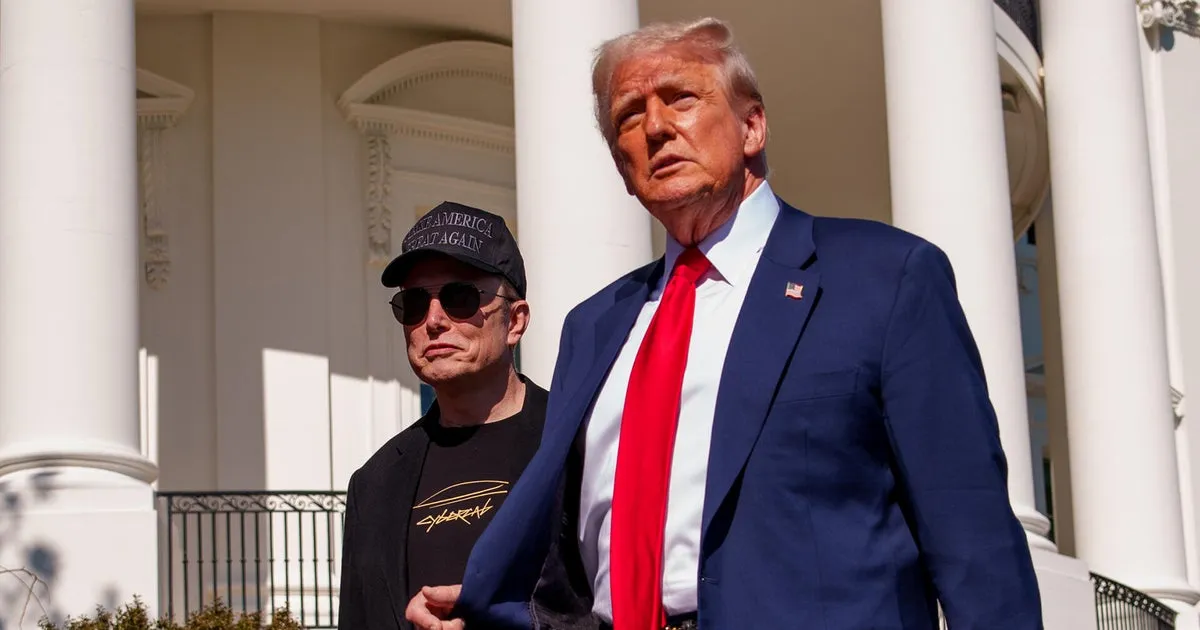
In a landmark ruling, a federal judge determined that Elon Musk and the White House's Department of Government Efficiency (DOGE) likely violated the Constitution in their attempts to shut down the U.S. Agency for International Development (USAID). U.S. District Judge Theodore Chuang's decision favored a group of over two dozen unnamed current and former USAID employees and contractors who challenged the efforts to terminate the agency led by Musk, who has been identified by President Trump as the leader of the task force.
Judge Chuang granted, in part, the request for a preliminary injunction. In his comprehensive 68-page decision, he asserted that both DOGE and Musk likely breached the Constitution's Appointments Clause and the fundamental principle of separation of powers. The ruling mandates Musk and DOGE employees to restore access to essential electronic systems such as email and payment for all current USAID employees and personal services contractors.
The judge’s order explicitly prevents DOGE and Musk from executing any actions related to the shutdown of USAID. This includes prohibiting the placement of employees on administrative leave, the termination of USAID personnel, the closure of agency buildings, and the deletion of website content. Additionally, they are barred from undertaking any actions concerning USAID without explicit authorization from legally empowered agency officials.
The Trump administration is expected to appeal Judge Chuang's ruling. The judge pointed out that denying the plaintiffs' claim regarding the Appointments Clause based solely on Musk's lack of formal legal authority could set a dangerous precedent. He emphasized that if a president could circumvent the Appointments Clause by allowing advisers to wield significant authority, it would undermine the very purpose of the clause.
Norm Eisen, the executive chair of the State Democracy Defenders Fund, which initiated the case on behalf of the USAID employees, hailed the ruling as a crucial victory against Musk and DOGE. Eisen remarked, “They are performing surgery with a chainsaw instead of a scalpel, harming not just the people USAID serves but also the majority of Americans who depend on government stability.” He described this case as pivotal in resisting the illegal actions of Musk and DOGE.
USAID, established in 1961, became one of the first agencies targeted by DOGE under Trump’s extensive plan to downsize the federal government. Following Trump's return to a second term, the agency faced a 90-day suspension on foreign assistance funding, which severely impacted nonprofit organizations and aid groups reliant on USAID support. Subsequently, DOGE personnel gained unauthorized access to USAID's financial and personnel systems, leading to the administrative leave of hundreds of staff members and the closure of the agency's website.
The lawsuit filed by the unidentified USAID employees and contractors in mid-February contended that Musk's actions contravened the Constitution's Appointments Clause. This case forms part of a broader series of legal challenges against Musk's unilateral decisions and the task force's access to sensitive federal systems. Musk's role within DOGE has garnered particular attention, especially as Justice Department lawyers claim he is merely a senior adviser without formal governmental authority.
Judge Chuang indicated that the evidence supports the conclusion that Musk and DOGE have been involved in agency actions across the federal government, including at USAID. He noted Musk’s involvement in the closure of the Consumer Financial Protection Bureau headquarters and other unilateral actions taken without the necessary authorization from agency officials.
The judge concluded that Musk exercised significant authority typically reserved for duly appointed officers, likely violating the Appointments Clause. He stated, “The public interest is specifically harmed by defendants' actions, which have usurped the authority of the public's elected representatives in Congress.” Chuang reinforced that Congress alone holds the constitutional power to eliminate agencies like USAID, with no existing statute granting the Executive Branch the authority to shut it down.
In his ruling, Judge Chuang expressed concerns over the potential public disclosure of sensitive or classified information by DOGE team members. He highlighted extreme measures taken by DOGE to access classified information, including secure facilities, when there was no legitimate need, particularly when some team members lacked the necessary security clearances.
As the legal battle continues, the implications of this ruling could set significant precedents regarding the authority and limitations of executive actions within the federal government, especially concerning the operations of vital agencies like USAID.